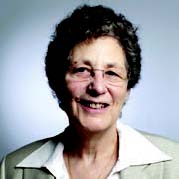 Our parents’ generation prided themselves on being independent. But most of us boomers who have lovingly provided years of support and caregiving for frail or ill parents know firsthand what a struggle it is to help elderly parents remain in their homes. These intimate and challenging experiences assisting our aging parents, along with the prospect of our own longevity, have created concerns about our ability to age well and to continue to live healthy, active meaningful lives.
Our parents’ generation prided themselves on being independent. But most of us boomers who have lovingly provided years of support and caregiving for frail or ill parents know firsthand what a struggle it is to help elderly parents remain in their homes. These intimate and challenging experiences assisting our aging parents, along with the prospect of our own longevity, have created concerns about our ability to age well and to continue to live healthy, active meaningful lives.
Numerous studies have identified factors unique to LGBT older adults and seniors that can be cause for a more intense level of concern and a source of ongoing distress. LGBT older adults are more likely than their heterosexual peers to live alone and not to have spouses or adult children to assist them in later life. We know from our caregiving experience with aging and frail family members that spouses and adult children are both the primary caregivers for seniors and an essential resource for social and financial assistance. How can we not be concerned about aging?
A recent national survey (“Out and Visible: The Experiences and Attitudes of LGBT Older Adults, Ages 45 -75,” Services and Advocacy for GLBT Elders, 10/6/14, http://www.sageusa.org/resources/publications.cfm?ID=214) explored age-related concerns among 1857 LGBT and 519 heterosexual people aged 45 to 75. It found significant differences in the level of concern. LGBT survey participants exhibit significantly higher levels of concern than their heterosexual peers about their ability to care for themselves as they grow old. Here are some key findings from the report:
• More than half of the surveyed LGBT people were very or extremely concerned about not having enough financial resources to live on as they age. LGBT older women were significantly more concerned than heterosexual women.
• LGBT older people fear that discrimination will be a barrier to accessing and receiving quality health care. Transgender people fear they will be denied medical treatment.
• LGBT people report experiencing significantly more concern about growing old alone, being lonely and not having someone to care for them.
• 40% of LGBT participants report that their support networks have become smaller over time compared to 27% of heterosexuals.
• LGBT older adults report fearing and experiencing more discrimination in housing and age-specific care environments.
• 40% of LGBT older adults fear that discrimination will be a barrier to work or volunteer activities.
The survey concludes with recommendations to create more LGBT welcoming environments in aging and senior services by providing cultural competency training to mainstream providers and proposes that “LGBT aging programs can fill the gap, but these types of supports need more funding support and widespread expansion.”
While the concerns and fears expressed in the survey are distressing, there is something positive to consider. Fears and concerns can be the impetus for action. We can take heart that the San Francisco Bay Area is home to a small, but growing, network of LGBT aging and LGBT inclusive senior serving agencies and organizations such as Openhouse, San Francisco Village, Community Living Campaign, Old Lesbians Organizing for Change, and the Black Coalition on AIDS/Rafiki Wellness.
Aging well isn’t so much about independence as interdependence. We can turn fear into advocacy and concern into community building. Take action and get involved.
Dr. Marcy Adelman, a clinical psychologist in private practice, is co-founder of the non-profit organization Openhouse and was a leading member of the San Francisco LGBT Aging Policy Task Force.
LGBT Resources
for Seniors
• Openhouse: 415-296-8995 openhouse-sf.org/
• Family Caregiver
Alliance: 415-434-3388
www.caregiver.org
• Institute on Aging: 415-750-4111, www.ioaging.org/
• National Resource
Center on LGBT Aging
www.lgbtagingcenter.org/
• Project Open Hand
San Francisco: Nutrition
Services, 415-447-2300
www.openhand.org/
• SAGE: 212-741-2247
www.sageusa.org/about/
• Shanti Project, Inc: HIV Services and Life Threatening Illnesses, 415-674-4700
www.shanti.org/
Alzheimer’s Association Programs and Services:
• 24/7 Helpline: 1-800-272-3900, www.alz.org/norcal/; Online Community: www.alzheimersblog.org/lgbt-forum
• Memory Clinic, Kaiser
Permanente Santa Clara Medical Center: 408-530-6900, mydoctor.kaiserpermanente.org/ncal/facilities/region/santaclara/area_master/departments/memoryclinic/index.jsp
Recent Comments